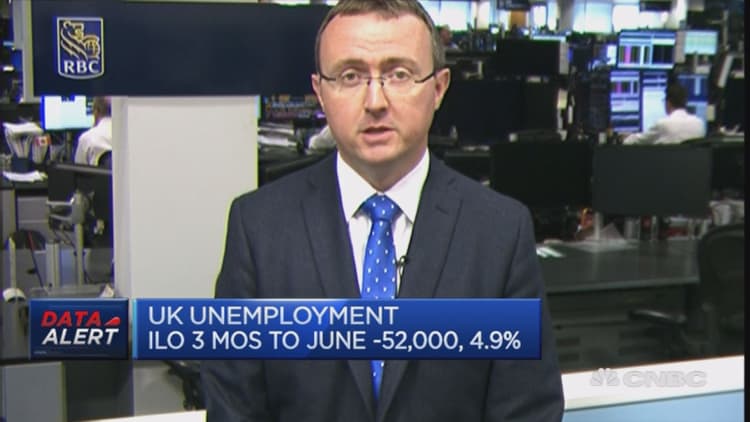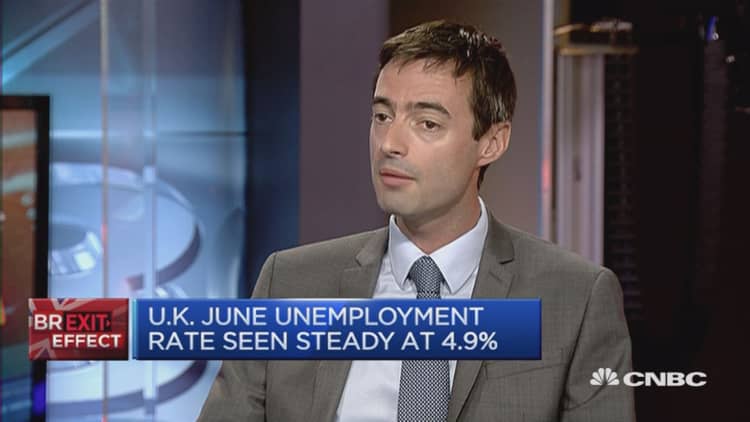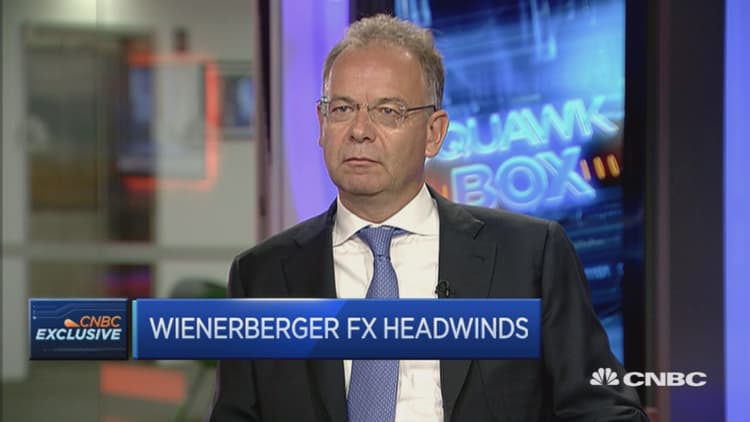U.K. retail sales posted a strong beat on Thursday, adding to a positive picture for the country's economy following the decision to leave the European Union.
July retail sales - an indicator of post-Brexit vote sentiment - posted a monthly rise of 1.4 percent versus consensus expectations of a 0.2 percent increase. The yearly figure saw a rise of 5.9 percent, according to official data by the Office for National Statistics.
Sterling spiked against the dollar on the news and rose close to $1.320 after trading near $1.305. Gilt yields rose, with prices falling.
"These are strong numbers showing a pronounced increase in sales compared with last July," Joe Grice, chief economic adviser at the ONS, said in a statement. "Better weather this year could be a major factor with sales of clothing and footwear doing particularly well." He added that there was anecdotal evidence that the weaker pound had encouraged overseas visitors to spend.
A word of warning
Also on Thursday, retail giant Kingfisher, Europe's largest home improvement retailer, said it was cautious on the short-term outlook for the U.K. after the vote to leave but said it had seen no impact yet on its business. It added that sales were up in the last three months, according to Reuters.
Ruth Gregory, a U.K. economist at Capital Economics, wasn't surprised by the relative resilience in spending given the fundamentals – such as low interest rates, inflation and a strong jobs market – remain supportive.
"But we would be wary about reading too much into the jump in July's figures. The month-on-month data tend to be fairly volatile and temporary factors such as July's warm weather seems to have boosted spending," she said in a note.
"Meanwhile, it will probably take some time before we see the full effect on the consumer of a weaker labor market and an increase in prices. So it would be fairly surprising if household spending growth didn't slow at all in the aftermath of the leave vote. Nonetheless, today's figures provide us with reassurance that we won't see a material collapse ahead."
A positive picture



Inflation and jobs data this week have also shown a surprisingly robust picture of the U.K. economy. Claimant figures last month actually fell following the country's decision to leave the European Union.
The data for July - released on Wednesday - showed that the number of people claiming out of work benefits fell 8,600, at 2.2 percent of the workforce. Economists had expected the number of benefit claimants to rise by 9,500 following the result to leave the EU.
Meanwhile on Tuesday, consumer prices in the U.K. saw their largest rise in July since November 2014, amid warnings that sterling's dramatic fall could stoke inflation. The pound fell to 31-year lows shortly after the result of the referendum on June 24.
Consumer price inflation dropped 0.1 percent in July, according to official data, but saw a 0.6 percent rise compared to the same period last year. This was above analyst expectations for a 0.5 percent rise.
In the coming months, analysts will continue to watch the unemployment level and retail sales as key indicators of how the Brexit vote is affecting the U.K. economy. Britain has yet to formally begin the EU exit process and even when it does trigger "Article 50" negotiations over the country's future relationship with the EU are expected to take years, leaving businesses in a state of uncertainty.
—CNBC's Catherine Boyle and Holly Ellyatt contributed to this report.


